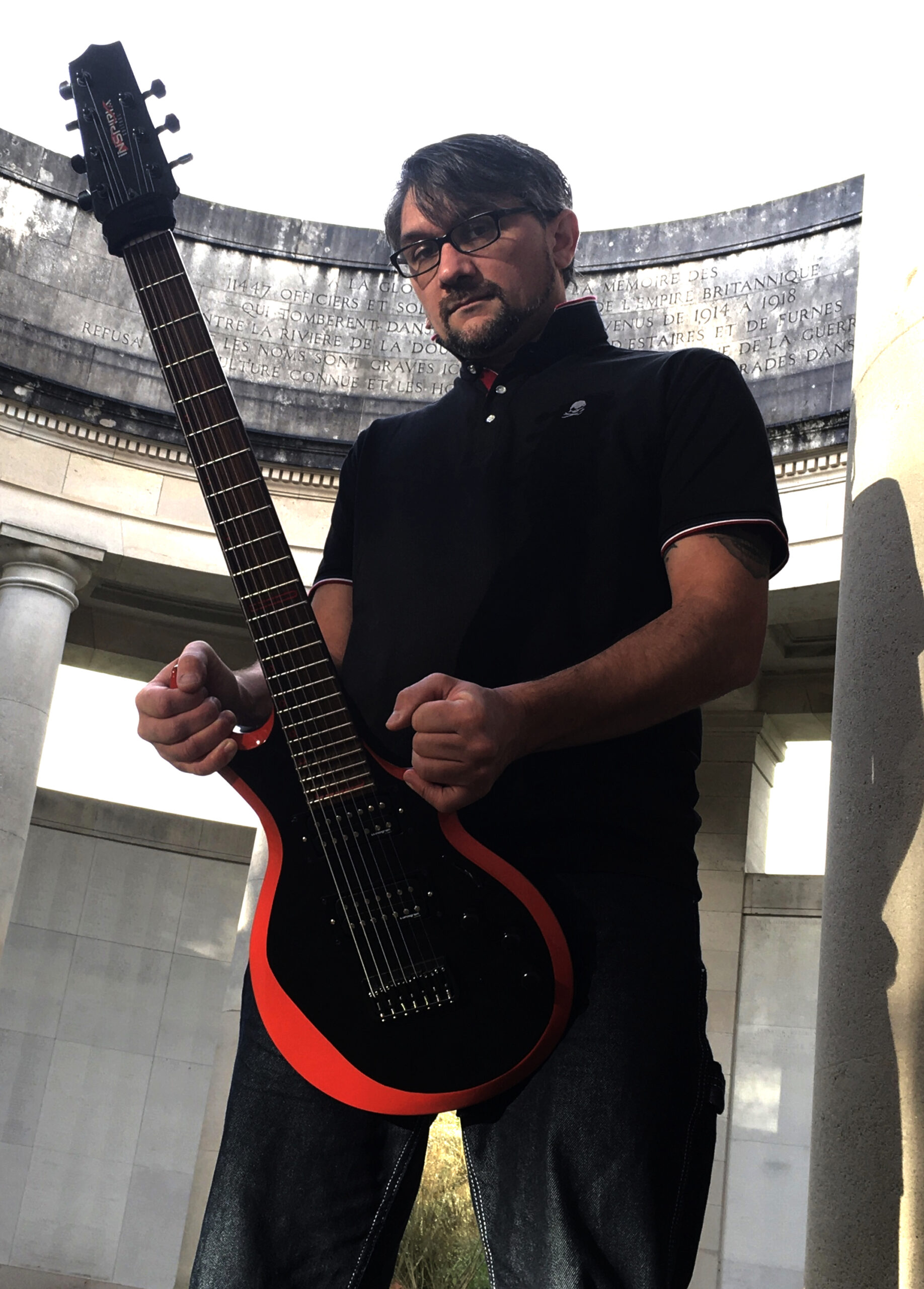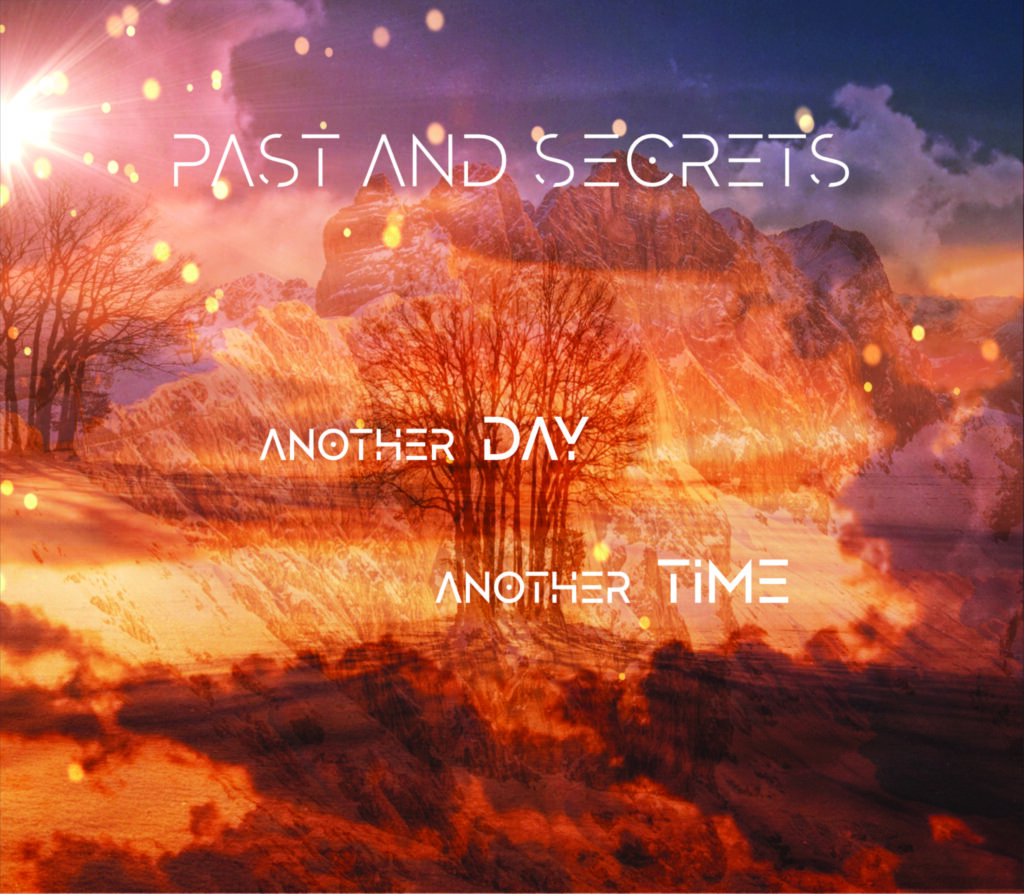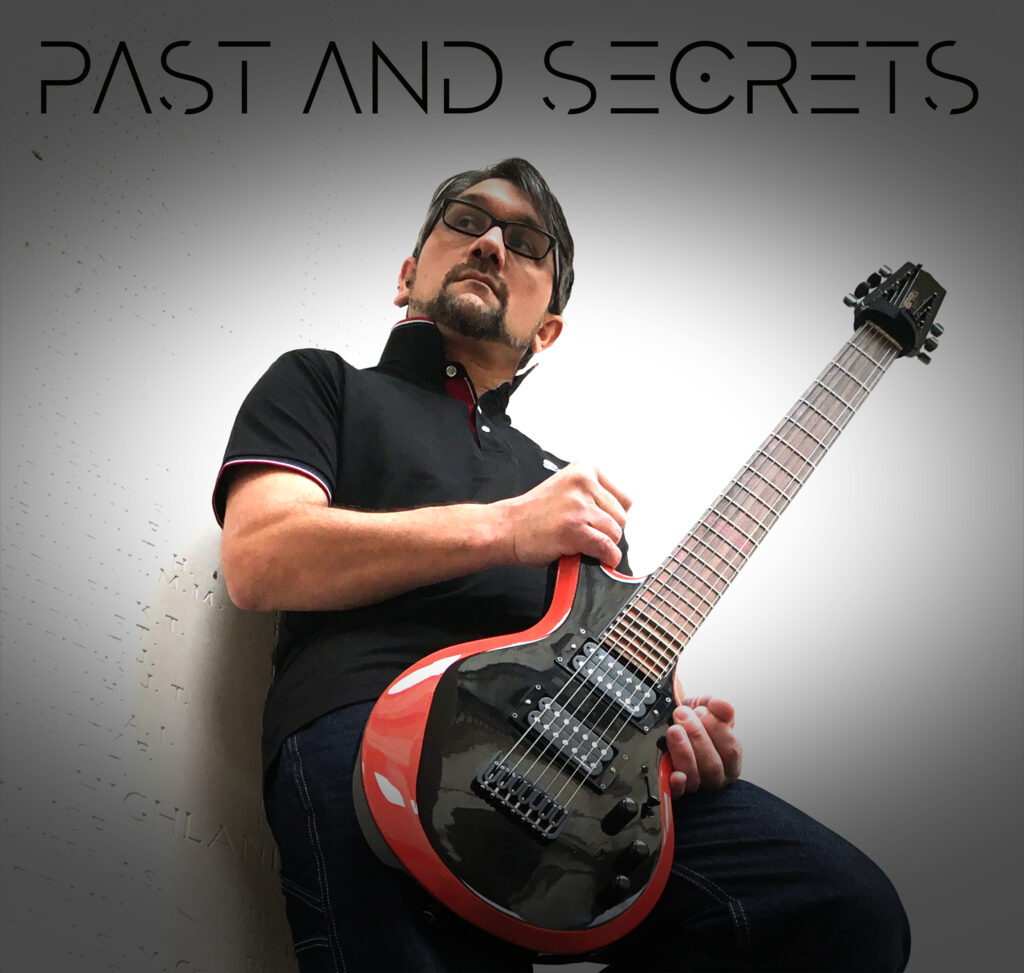In this exclusive interview, we delve into the world of Past and Secrets, a groundbreaking musical project that emerged in 2019 from the ashes of a disbanded group. The mastermind behind this endeavor, Yohan Delasalle, shares insights into the project’s inception, the creative journey that led to the acclaimed debut album Memories, and the distinctive fusion of atmospheric, ambient, and djent elements that define their sound. As we explore the inspirations, challenges, and future aspirations of this one-man band, we gain a deeper understanding of how personal experiences and a diverse range of musical influences shape the evocative and introspective nature of Past and Secrets‘ music. Join us as we uncover the essence of this unique musical odyssey and the passion driving its creator.
Can you tell us about the inception of Past and Secrets and how your vision for the project has evolved since its beginnings in 2019?
First of all, thank you very much for granting me this interview. Past and Secrets is a project that was born in 2019 following the end of a band that really affected me. I wondered how I could go on playing music. Being a big fan of instrumental projects, I thought it was time to create my own, drawing inspiration from past, present, and future events in my own life.
Three initial tracks were recorded at that time, and I chose one that really suited me. I decided to record it and share it for feedback. It was a great success, and that’s what gave me the strength to carry on. That’s when I came up with the idea of releasing a 5-track album called Memories. Why this title? Because it perfectly represented the atmosphere I wanted to give to the project. The album was warmly received and really gave me the desire to continue.
Your music is described as a fusion of atmospheric, ambient, and djent elements with a progressive and quirky touch. How do you balance these diverse influences to create a cohesive sound?
You have to realize that I listen to a lot of different musical styles. I can go from classical music to 70s rock (I’m a big Pink Floyd fan), guitar heroes like Steve Vai, as well as blues, jazz, and other pop rock bands. I’ve also listened to the new metal trends of the 2000s (Korn), including extreme metal (Meshuggah).
Mixing all these styles gives me a very open mind when it comes to writing. That’s another advantage of working with your emotions as an instrumental artist. It’s not easy to find a balance in your own life, but music allows me to play with that. The art lies in knowing how to blend opposing but complementary sounds, and this musical genre is the perfect demonstration of that. We can go from anger to joy in the snap of a finger. Everyone is free to feel their own emotions according to their state of mind by listening to this album.
“Memories”, your debut album released in October 2020, has been warmly received. How did past and present events inspire the compositions on this album?
I’ve kept a lot of feelings buried inside for many years that had to come out at some point. The only solution was to express them through this style of music. Let’s take a concrete example: the track “BORN” was inspired by hearing the heartbeat of my unborn child through his mother’s womb. The whole album is an anthology of this kind of life story.

Could you explain the creative process behind your exceptional cover of Pink Floyd’s “Learning To Fly” and how you managed to give this iconic song a unique twist?
As I’ve said before, I’m a big fan of Pink Floyd. They have a lot of iconic songs, but this one particularly appealed to me because it’s about traveling, lightness of spirit, and the need to escape. And that’s what I’m all about. It was easy for me to cover it in my own way, combining the ambient and djent side of my instrumental music while trying not to distort the original track. According to the various reviews it has received, and to my great surprise, it has been a great success of which I am quite proud.
What’s more, I couldn’t see myself recording the video clip anywhere other than an airfield. This allowed me to fit in perfectly with the story expressed by this magnificent track.
Your next EP, “Another Day, Another Time”, is eagerly awaited. What can fans expect in terms of musical themes and sonic exploration?
To be honest, it was very difficult for me to release this new album. Given the critical acclaim the first album received, I put a certain amount of pressure on myself to give the fans the best of myself once again. I had to find new emotions, new inspirations, and above all try to give something new and better than the first, especially in terms of structure. But the most important thing I retained was the pleasure of continuing to make music out of passion, in order to convey what I feel. That’s when the pressure came off and the writing became a lot easier.
As each track on Past and Secrets is described as an invitation to introspection, how do you go about conveying emotions and evoking a sense of immersion through instrumental music?
As I said earlier, the invitation to introspection in each of my tracks is mainly based on how I feel. Now, I think that each listener can have a completely different feeling about each track compared to what I had when I was writing it. It’s true that I listen to a lot of instrumental music as well, both through film soundtracks and other musical projects that correspond to me.
The artist can very well give a title and an emotion to his work that doesn’t correspond at all to those that the listener will feel when he listens to it. On the other hand, I always try to respect a fundamental rule that is not obvious: the listener must feel transported from the first to the last second while listening to my productions. I’m succeeding so far.
Your experience as a guitarist spans 25 years and encompasses a wide range of influences, from Pink Floyd to extreme metal. How have these various musical inspirations shaped your playing style and your approach to composition?
I’ve always believed that music should be simple and easy to listen to. It should transport you and make you dream. It should also allow you to identify with something so that you don’t feel alone in complicated moments. Some of the movements that have emerged have made us realize that we’re not alone and that we shouldn’t close ourselves off.
What’s more, I didn’t want to write songs that had to respect a certain code. But they absolutely had to be very easy to listen to and not bore you. So I drew inspiration from all the things I could listen to in order to create my own compositions and try to have my own style. I also like diversity; I don’t want to write songs with repetitive riffs and the same tone.
As a one-man band, what are the challenges you face in the creative process, and how do you overcome them to realize your musical vision?
- Inspiration, without hesitation! If it’s not there, there’s no point in writing. I have to admit that I’ve had very bad periods when I tried to write something, but it didn’t correspond at all to what I was expecting. There have been many times when I’ve deleted something and had to start all over again without it being what I expected. I’ve also experienced the “blank page” syndrome, where nothing comes out.
- The writing style and different transitions: As I’ve already explained, I absolutely had to take this new album to the next level. And that’s what led me to have to start over on many of my tracks so that they didn’t copy what had already been done, while keeping in mind the project’s soaring, hard-hitting side.
Your debut album features some impressive solos with international guest artists. Can you tell us about the collaborative process and the influence of working with other musicians on your compositions?
I always arrange to meet solo artists who suit my style of writing. There’s a good side to the Internet. First of all, you have to convince them to be part of the project, and that’s often no easy task. I also like to get my friends involved, whether they’re at a good level or not. Then, as soon as they agree, I ask them to be inspired by the title I’ve decided to give the track and to do what they want, according to their feelings and their emotions.
I then discuss the composition of the solo with them and try to find the best possible way of showcasing their work. What you have to understand is that many of my tracks are also highlighted thanks to their work, and I can’t thank them enough. That’s what Past and Secrets is all about: the alliance between a musician and his partners.

“Another Day, Another Time” is described as a sonic journey. How do you structure your albums and EPs to take listeners on this journey, and what do you hope they experience along the way?
Mostly I put myself in the shoes of the person who’s going to listen to it. The last thing I want is for the music to become too repetitive and boring. In this style of music, we absolutely have to take the listener from the first to the last second without them getting bored. That’s also why I decided to write fairly short albums, ranging from 18 to 24 minutes maximum, so as not to lose the listener too quickly. The main aim of music is to transport and escape, and I find that this is the best way to forget yourself for that length of time. That’s also why the order of the songs has to be well-chosen, because it brings a certain fluidity that’s necessary.
Your music has received critical and public recognition, backed by numerous brands. How does this external validation influence your creative process and your motivation as an artist?
When you’re a musician, you feed on dreams. I’m lucky enough to work for some brands that have recognized my work through the music I make, my inspirations, and my writing style. When a partner comes to you and asks you to work for them or represent them, it’s always an honor. And it gives you the motivation to continue and become even better, while remaining humble. This term is very important to me because it allows me to keep my feet on the ground and analyze failures so that I can move forward. I don’t think I can ever thank them enough for their support and trust, because they allow me to fulfill myself as a musician.
You’ve said that you were influenced by classical music. How does classical music influence your approach to composing and arranging in the context of progressive metal?
I think classical music is the basis of every musical style that exists on this earth. Many great international artists have been inspired by the great classical writers of the day to write their own music. Classical music also allows you to learn about the arrangements between different instruments such as the violin, cello, piano, and wind instruments. It also allows you to appreciate the different colors and layers of sound you can bring to a single piece.
Many progressive guitarists have studied classical music to enrich their compositional work. It’s also possible to see some of them taking up these works and making them their own in their own musical style. I proceeded in the same way for my writing, trying to mix the different colors and sounds possible and combining different instruments.
Could you tell us about your typical studio setup and recording process when you bring a Past and Secrets track to life?
I work very much on instinct and I’ll tell you one thing: the voice recorder on my phone is my best friend. When I see or hear something in particular, an idea can come to me all of a sudden and I need to record it on the spot. It could be when I’m reading a book or hearing a particular sound. From that moment on, I transcribe that idea onto my sequence and build different sounds around it.
Then, I add the different guitar riffs and drum sequences, trying to find the best tempo to get the most intense emotions possible. It takes me a while to bring these tracks to life, though, because other elements can come into play and give me other inspirations. I’ve seen a song come to life ten years after it was written. In the end, only five notes were retained and it took a completely different turn. I really find this work very original and very rewarding because it allows you to see the progression you can have after so much time.
What role do visual imagery or narrative play in your music, if any, and how do you translate these elements into instrumental compositions?
I think this is the next stage of the project. I haven’t yet managed to find partners to make film soundtracks or possibly sounds for video games, but it would be a real thrill for me to do it for myself. When I first listened to some of my tracks, a lot of people asked me if I did instrumental music for films or video games because my style really lent itself to that. I really like the idea and I sincerely hope to be able to do it very soon.
How do you push back the boundaries of instrumental progressive metal with Past and Secrets, and what differentiates your approach from that of other artists in the genre?
I don’t know if we can talk about limits in the progressive metal style. A lot of bands in the genre do it in their own way. To be honest, I’ve mainly been inspired by Polish bands (Widek, Distant Dreams) and other better-known solo artists (Plini, Per Nilsson) who are renowned in their genres, as well as certain artists who practice the same art as I do (like Andromida).
As far as I’m concerned, I’m mainly categorized in this style because of the soloists on each of my tracks. But I see more of the djent, metal, ambient, and atmospheric side rather than the progressive side.
What are your aspirations for the future of Past and Secrets, and what new directions or experiments are you looking forward to exploring musically?
I’d really like to get involved in producing music for films or possibly video games. It would be a really great experience for me, allowing me to discover other worlds in relation to writing and creating an album. I think it would be a very enriching experience. On the other hand, Past and Secret will remain Past and Secret, a project that mixes atmospheric, ambient, metal, djent, and hard-hitting solos. This is my trademark and I really want to keep this system, which I really enjoy and which allows me to pursue my passion. I’ll probably be using instruments other than the guitar to explore other horizons and allow myself to have fun making the music I love.
Finally, what message or feeling do you hope listeners will take away from their experience of Past and Secrets’ music?
Escape from the world around us and everything we’re going through. That’s really the message I want to get across to everyone who listens to this project. It’s really been created so that we can immerse ourselves in a journey in which each listener will take the direction that pleases them. We all have a past, a present, and a future and also secrets of our own. I hope that everyone can identify with what I compose. This will allow them to escape, which is the very essence of music in general. But above all, I’d like to thank every listener for their attention to this interview and to the project. It’s a real honor for me and a great reward for the work I’ve done over the last few years. Thank you very much.
Take a listen of “Another Day, Another Time” on Bandcamp, and follow Past and Secrets on Facebook and Instagram.

